Book Review: “Rise Up”
Book: Rise Up by Russ Stoddard
Reviewer: Bobby Powers
My Thoughts: 7 of 10
Russ Stoddard’s career began differently than most. He started as a river guide on the Middle Fork of the Salmon River in Idaho. He says the lessons he learned on the river informed his pursuit of social entrepreneurship. Stoddard went on to found the public benefit marketing firm Oliver Russell, where he steers the boat as CEO. His recent book Rise Up is a practical “how to” guide for creating and leading a social enterprise. Stoddard shares how his experience with social entrepreneurship has led him to find deeper meaning than mere profitability. This book is a useful tool for anyone interested in driving social change within their work.
Takeaways from the Book
What is a Social Enterprise?
- “Many experts differ on what a social enterprise actually is, but here’s the definition I use: a for-profit company that intentionally provides products, services, or business models that benefit society and/or the environment using commercial market strategies.”
- “Social enterprise is still about the bottom line–just a different one. As a social enterprise, your company will work purposefully toward three general outcomes: social impact, environmental benefit, and financial profit.”
- “At the heart of every social enterprise is a smart, passionate human being who is committing their career to being a changemaker.”
- “Today, social enterprises run the spectrum, from high-tech startups developing technology that promotes water conservation, to cooperative ventures of consumers banding together around common purposes, as is the case with heath insurance co-ops.”
- “Social enterprise gives you an entirely new way of looking at your business. It’s challenging, for sure, as you’re no longer merely trying to move forward and cross a finish line marked by annual financial profit–you’re now playing a holistic business game on a field of play that covers all 360 degrees.”
- “For me, embracing a higher purpose in our business and codifying it through a certification process (becoming a B Corp) has made all the difference in the world. I now operate in an environment that truly creates the meaning I’m seeking from my work.”
The Purpose-Driven Movement
- “It is easy to get caught in a focus on financials, but employees and customers are increasingly attracted to brands and firms that have a higher purpose. It makes a difference.” -David Aaker
- “Millions of conscious consumers are redefining themselves in large part by who they are–and this includes who they affiliate with in the world of commercial brands.”
- “In today’s world, companies of all sizes are being asked to proactively do good. Companies aren’t being forced to this end by the government or lawyers (though there are municipalities beginning to offer incentives for this behavior). No, companies are being pushed to create public benefit by consumers and employees, two powerful audiences who are both exerting newfound control over businesses large and small.”
- “Consumers are beginning to consolidate their purchasing with companies that share their values around social and environmental issues.”
- “Companies are no longer allowed to operate like incumbents on the stump, hewing a considered, cautious, and noncontroversial approach for fearing to offend their customer base…Nowadays, the risk of not taking a stand is becoming greater than the danger of doing so.”
- “You have an opportunity to inject your business with a sense of meaning that resonates with your audiences and extends beyond product, paycheck, and profit. It will help you attract, retain, and motivate employees, position and differentiate your company in the minds of your customers, and open doors to new relationships with other businesses.”
Your Purpose and Values
- “As a social entrepreneur, financial profit is an outcome of your enterprise. Your purpose is where you start. It’s the primary driver of everything you do and the single most important idea you’ll need to define.”
- “Which values will you support and live even in the toughest of times, especially when they might cost you money?”
- “Your values should positively differentiate your company and communicate a fundamental belief system and code of conduct.”
- “Values can be pretty philosophical and lofty, when what they really need to be are accessible and practical…Values are a fundamental code providing guidance in making everyday decisions and setting critical long-term strategy.”
- “Social entrepreneurs are not content just to give a fish or teach how to fish. They will not rest until they have revolutionized the fishing industry.” -Bill Drayton
People
- “One of the largest social impacts a company can have is on the lives of the people who work there.”
- Stoddard shared a few examples of employee benefits offered at his company:
- “We have a healthy-living benefit where every person receives $50 a month to purchase a product or service that will make them healthier.”
- “We also provide a stipend for alternative transportation. If one of our team members walks to work, rides their bike, takes public transportation, or carpools, they receive the cash equivalent of a day’s paid parking.”
- “Our company, Oliver Russell, has measured its performance on work-life balance yearly since 1997. In the nearly 20 years we’ve surveyed our team, the results consistently show this is the most important issue to our workforce–even routinely outpolling compensation…We don’t believe that working 12-hour days on end is a badge of courage. We frankly don’t think it’s smart or sustainable, so we discourage it.”
- “We allow team members to work flexible hours that fit their lifestyles.”
- “We have the ability to work remotely.”
- “Coming down with a cold? Oliver Russell has an unlimited sick leave policy–if an employee is sick, they can just stay at home and forego the cost/benefit calculation of subtracting a personal leave or vacation day from their yearly allotment.”
- “While, as a business of fewer than 50 employees, we aren’t required to comply with the Family Medical Leave Act, we provide maternity leave. Paid. And we provide paternity leave. Also paid.”
- “If you intend to create a purpose-driven workplace, your number one priority should be creating a work-life balance for the people who are its economic engine.”
Sharing Your Story
- “A big side benefit of building a socially conscious business is that you’re creating a brand that is real, a brand that is human. And that’s what people are trying to find.”
- “Most people are naturally attracted to companies with a higher purpose.”
- “Start by sharing your story inside the company with your team so they are on board, feel valued, and can become your most effective storytellers.”
- “One way to share your purpose is to simply give preference to partnerships and relationships with businesses that share your values. After all, if you want to further business as a force for good, you should buy from other businesses sharing your values and goals.”
- “Your brand should have its own original brand personality, one that differentiates you and hopefully makes you appealing to your target audience.”
The Business Case
- “Don’t get me wrong, we’re all in business and money’s still the primary fuel that makes the marketplace go round. We have to recognize this–and, as one sage social entrepreneur told me– ‘No margin, no mission.’”
- “The idea is to minimize your environmental footprint while you operate as a business. The benefit, aside from the environmental good, is that when you conserve resources, you also conserve cash.”
- “Having a higher purpose serves as a powerful recruiting tool for hiring the best available talent…Your purpose attracts others with similar interests, and in this case it reduces your recruitment costs significantly. I haven’t had to pay for a job listing in year because I have a large file of qualified candidates who have expressed a strong desire to work for Oliver Russell.”
Think you’d like this book?
Other books you may enjoy:
The Purpose Economy by Aaron Hurst
The B Corp Handbook by Ryan Honeyman
Other notable books by the author:
(None)
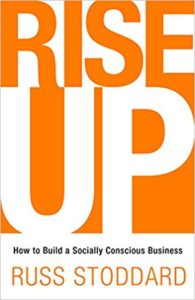
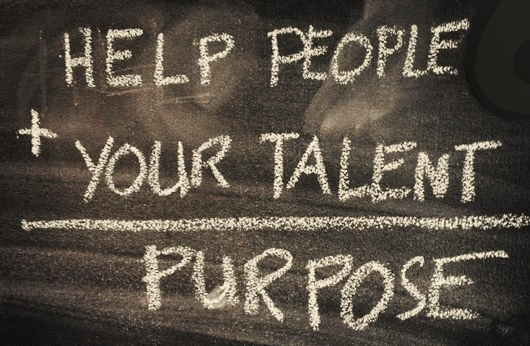

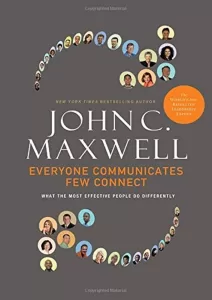
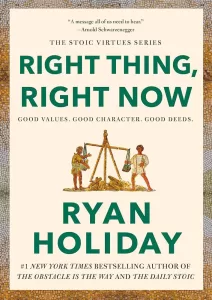
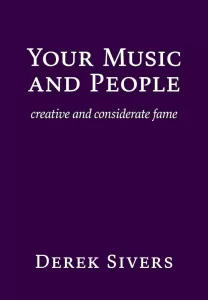
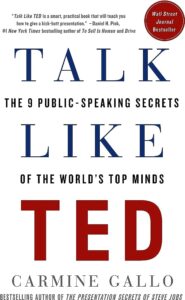
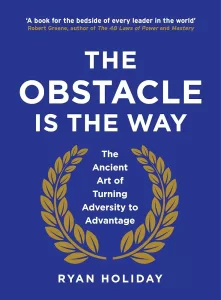
Thanks for the review!
You bet! I’m glad you enjoyed it.